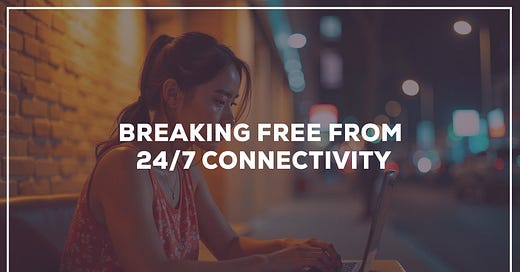I attended my first college party in September 2023, an apartment brimming with laughter and movement, the air thick with the mingling scents of perfume and perspiration. A table overflowing with Jell-O shots, vodka, and mixers stood at the center, while music pulsed through the walls, a nostalgic mix of 2010s anthems and bass-heavy rap that seemed to make the floor vibrate. My roommate and I sank into a well-worn couch, belting out "Party in the USA" at full volume, our voices barely rising above the hum of conversation. We played pong with unfamiliar faces, wrapped our arms around strangers, and let ourselves be swept up in the thrill of the night. We drank, we talked, we laughed, we sang, we danced crossing an invisible threshold into what felt like true adulthood.
By the time we stumbled back to our dorm, exhaustion and alcohol weighing heavily on me, I dialed my long-distance boyfriend. “I missed you so much,” I murmured, the words thick with sincerity, my chest aching with the truth of them.
“I don’t think that’s true,” he replied, his voice unexpectedly sharp. Caught off guard, I let out a disbelieving laugh. “What? Of course it is.”
“You say you missed me, but you never even sent a text.”
I furrowed my brow. “I’m calling you now. I got caught up in the moment, in conversations. I barely looked at my phone. Can’t you understand that?”
“So you couldn’t have taken two seconds to message me?” he pushed, unwilling to let it go.
We talked in circles, each retreating into our own hurt. To him, my silence was a form of neglect. To me, it was simply the result of being present in my own experience. The night ended with silent tears soaking my pillow, swallowed sobs muffled so my roommate wouldn’t wake. I didn’t want her to see. I didn’t want to explain. I didn’t want to be pitied.
Even now, I wonder how often I have missed someone without telling them. How many times I have let a moment slip away without reaching out, without putting words to the ache of missing them. But is it not enough to carry someone in your thoughts, to hold them close in the quiet, without needing to declare it?
The modern world has made connection instantaneous. Everyone is accessible at all times just a message, a call, a notification away. So does that mean there is never an excuse not to say "I love you" the second the feeling arises? With the convenience of constant contact comes an unspoken pressure the expectation of immediate replies, the assumption that if you care, you will always be available. But if you don’t respond right away, if you let time pass before reaching out, does that mean your love is any less real? I refuse to believe that.
Many of my friends, tethered to their relationships, groan at the sight of yet another text notification from their partners. “He just won’t stop texting me,” they sigh, rolling their eyes before silencing their phones. What starts as endearing concern slowly transforms into something heavier a quiet resentment, the weight of constant communication becoming suffocating. Is love supposed to require an endless stream of check-ins? Must we always know where our person is, how fast they’re driving, the exact percentage of their phone battery? My answer is a firm no.
Not all relationships thrive on constant updates, on the meticulous detailing of every passing moment. Some do. Others crumble beneath that weight. Over time, I have come to cherish my independence, to find peace in the quiet spaces between conversations, in the freedom to exist without explanation.
And yet, despite my guarded solitude, I know I am not unreachable. With the right person, I would want to know what they’re cooking for dinner, which song they’ve been playing on repeat. But real love should never feel like surveillance. It should be an unshakable understanding, a connection that does not demand proof to exist. I want to live my life fully, and I want them to do the same but never in a way that makes either of us feel lost within the other.
Somewhere along the way, anxious attachment has woven itself into the fabric of modern relationships. The need for constant reassurance proof of love in the form of texts, check-ins, and immediate responses has become the norm rather than the exception. Because if they aren’t texting first, if they aren’t replying instantly, if they aren’t offering a steady stream of validation, then do they even love you?
It seems that many have forgotten that relationships should enhance our lives, not consume them. Love should be something that fortifies us, not something that depletes us, leaving us feeling like mere fragments of ourselves under the weight of unrelenting expectations. Rather than existing as a space of trust, love has, for many, become a performance a never-ending effort to prove, to reassure, to quiet someone else’s fears.
We are living in an age of relentless communication. Love, once measured by presence and understanding, is now quantified by the frequency of messages, the speed of responses. It has turned into an unspoken competition over who cares more. But love should not be determined by response times. It should be felt in the spaces between conversations, in the quiet confidence that remains even in the absence of words even when miles apart. The right person will not demand constant affirmation. They will know the love exists not through ceaseless words, but in the undeniable, unwavering presence of its existence.
Thank You
EL!!!h




